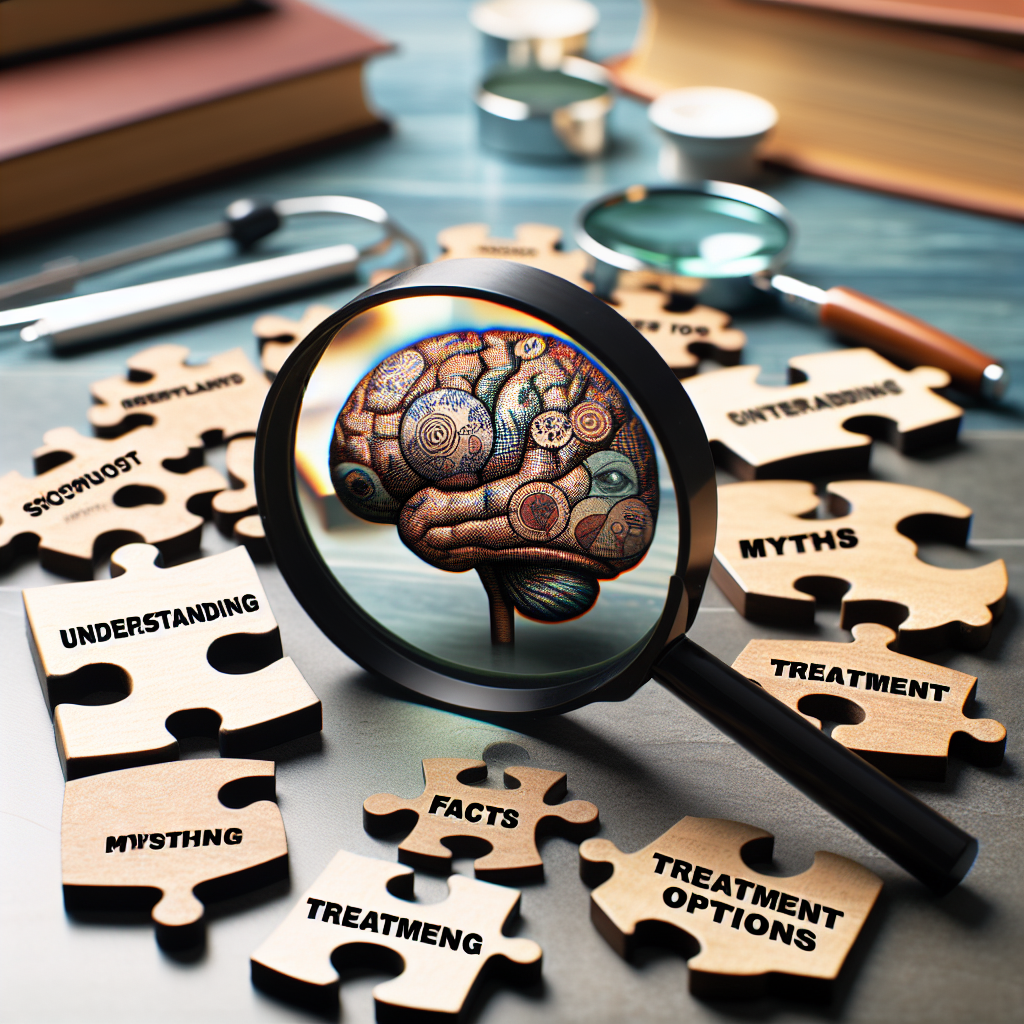Introduction
Understanding Antisocial Personality Disorder (ASPD) is essential in a world where empathy can seem increasingly scarce. Often misrepresented and stigmatized, ASPD is shrouded in myths that can perpetuate misunderstanding. By diving into this complex issue, we can separate fact from fiction, gain insights into effective treatment options, and foster a more informed discussion around mental health.
This article will comprehensively explore ASPD, its common misconceptions, factual underpinnings, and the current treatment landscape. Join us on this journey to better understand and demystify an often-misunderstood mental health condition.
What Is Antisocial Personality Disorder?
Antisocial Personality Disorder is characterized by a pervasive pattern of disregard for the rights of others. Individuals with ASPD often struggle with impulsivity, deceitfulness, irritability, and lack of remorse for their actions. While these traits may exist on a spectrum, recognizing the key features can help us understand the disorder more profoundly.
Diagnostic Criteria
The Diagnostic and Statistical Manual of Mental Disorders (DSM-5) outlines several criteria for diagnosing ASPD, including:
- A consistent history of violating social norms;
- Deceitfulness, including repeated lying or conning others for personal gain;
- Impulsivity or failure to plan ahead;
- Irritability and aggressiveness, resulting in physical fights or assaults.
Myths Surrounding Antisocial Personality Disorder
Myth 1: All Individuals with ASPD are Violent Criminals
Fact: While some individuals with ASPD may engage in criminal behavior, not all do. Many can lead functional lives and may not exhibit overtly violent tendencies. It’s crucial to avoid generalizations based on sensationalized media portrayals.
Case Study: Consider John, a successful entrepreneur diagnosed with ASPD. He exhibits manipulative traits in his business dealings but has never resorted to violence. John’s story illustrates that while ASPD’s characteristics can lead to unethical behavior, violence isn’t a requisite.
Myth 2: ASPD is Caused by Poor Parenting or Trauma Alone
Fact: The origins of ASPD are multifaceted, involving a complex interplay between genetics, neurobiology, and environmental factors. Poor parenting and trauma can be contributing factors, but they don’t account for all cases.
Case Study: Sarah grew up in a nurturing environment with minimal trauma exposure yet developed ASPD. Her story showcases that genetic predispositions and neurobiological factors play significant roles alongside environmental influences.
Myth 3: People with ASPD Cannot Change
Fact: Change is difficult, but it is possible. Effective treatment options can lead to improvements in social functioning and emotional regulation, debunking the myth that individuals with ASPD are incapable of change.
Case Study: Mark underwent cognitive behavioral therapy (CBT) and reported significant improvements in managing impulsive behaviors and understanding the consequences of his actions. His experience emphasizes that therapeutic interventions can facilitate change.
Realities of Antisocial Personality Disorder
Understanding the Facts
- Prevalence: ASPD affects approximately 1% to 4% of the population, with men being more likely diagnosed than women.
- Co-occurring Conditions: Individuals with ASPD often have other mental health conditions, such as substance use disorders or anxiety disorders.
- Impact on Relationships: The impulsivity and manipulativeness associated with ASPD can lead to challenges in maintaining relationships, both personal and professional.
The Neuroscience of ASPD
Recent studies suggest that structural and functional brain abnormalities—particularly in the prefrontal cortex and amygdala—may contribute to the characteristics of ASPD. Understanding the biological basis of ASPD can aid in developing targeted treatment interventions.
Treatment Options for Antisocial Personality Disorder
-
Psychotherapy: Cognitive Behavioral Therapy (CBT) is one of the most effective forms of therapy for people with ASPD. It helps individuals recognize harmful patterns of thought and behavior.
-
Medication: While no medications are specifically approved for ASPD, some individuals may benefit from medications that address co-occurring disorders like anxiety and depression.
- Skills Training: Teaching social skills, emotional regulation, and moral reasoning can help improve interpersonal relationships and social functioning.
Table: Treatment Options for ASPD
| Treatment Type | Description | Effectiveness |
|---|---|---|
| Psychotherapy (CBT) | Cognitive Behavioral Therapy focuses on behavior changes and thought patterns. | High for managing symptoms. |
| Medication | Antidepressants or antipsychotics for co-occurring issues. | Variable; helps with secondary symptoms. |
| Skills Training | Social skills and emotional regulation training. | Moderate; enhances social interactions. |
Conclusion
Understanding Antisocial Personality Disorder: Myths, Facts, and Treatment Options is a crucial step toward fostering empathy and support for those affected by this condition. By debunking myths and focusing on factual insights and treatment pathways, we create an environment conducive to healing. Remember, while ASPD poses significant challenges, there is hope for improvement and recovery.
Actionable Insights
- Educate Yourself: Keeping abreast of facts surrounding ASPD helps combat stigma and promotes understanding.
- Encourage Open Dialogues: Engage in conversations about mental health and share insights to create a more compassionate community.
- Explore Treatment: If you or someone you know struggles with ASPD, consider therapy options as a viable path toward change.
FAQs
1. Is Antisocial Personality Disorder hereditary?
Yes, research suggests a genetic component, which may increase susceptibility to developing ASPD.
2. How is ASPD diagnosed?
Diagnosis is typically made by a mental health professional using the DSM-5 criteria, often requiring a detailed clinical assessment.
3. Can individuals with ASPD lead normal lives?
Yes, many individuals can manage their symptoms and lead productive lives, especially with effective treatment.
4. What role does therapy play in treating ASPD?
Therapy, particularly CBT, can be instrumental in helping individuals understand and change problematic behaviors.
5. Are there support groups available for families of individuals with ASPD?
Yes, numerous organizations provide resources and support for families dealing with ASPD and related issues.
Understanding Antisocial Personality Disorder: Myths, Facts, and Treatment Options opens a pathway for informed dialogue, compassion, and potential change. Let’s continue the conversation and work towards understanding and supporting those affected by ASPD.

